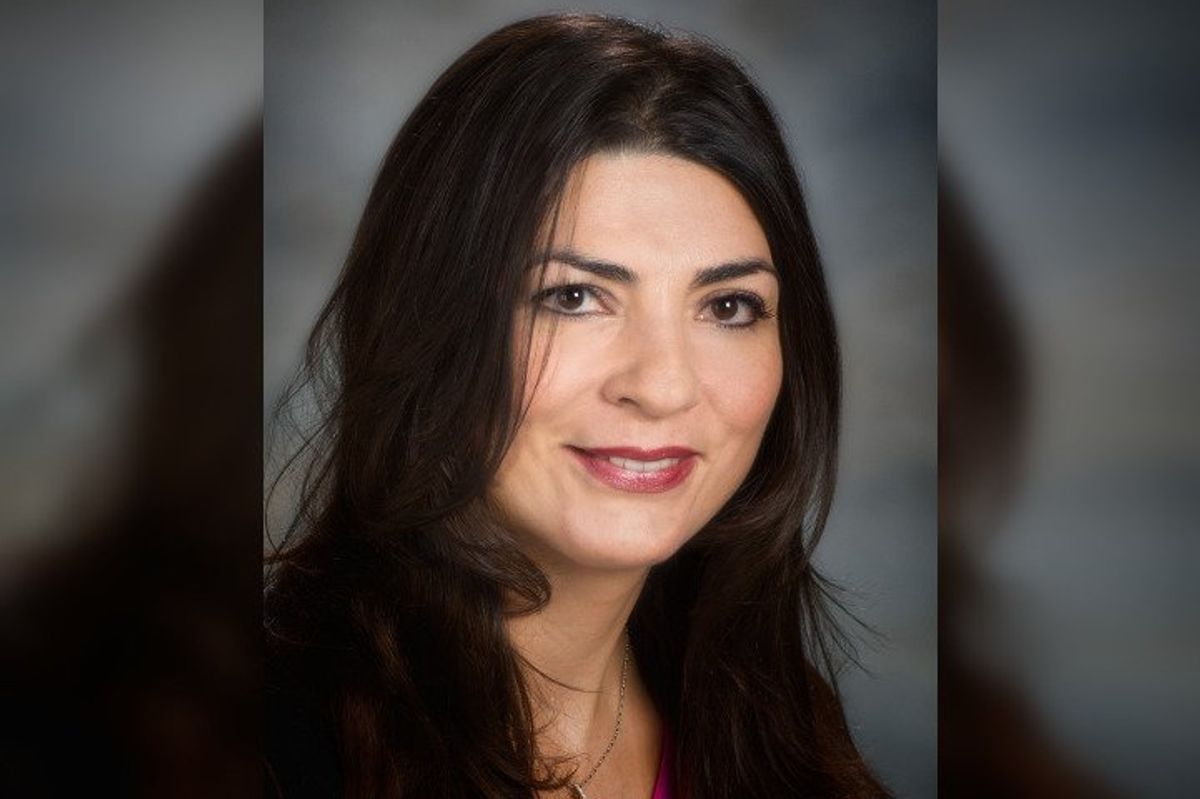Editor's note: Every week, I introduce you to three Houston innovators to know recently making headlines with news of innovative technology, investment activity, and more. This week's batch includes a podcast with a health tech founder, advice from an AI expert, and a cancer-fighting innovator.
Jessica Traver Ingram, CEO and co-founder of IntuiTap

Jessica Traver Ingram, CEO and co-founder of IntuiTap, joins the Houston Innovators Podcast to share her company's latest milestone. Photo courtesy of IntuiTap
Jessica Traver Ingram has been captivated by the intersection of physics and health care for most of her life, and that passion led her to contributing to the establishment of the Texas Medical Center's Biodesign Fellowship. After helping make the program a reality, Traver Ingram then participated in it as a fellow.
The program selects fellows and then lets them explore the TMC's member institutions to find ways to innovate within unmet clinical needs, and the inefficiency and challenges with placing epidurals and lumbar punctures caught Traver Ingram and her cohort's eye. The process relies completely on the health care practitioner's ability to feel the spine with their fingers to make the injection.
"We kept watching the inefficiencies of these procedures, and everyone was like, 'you're right, we don't really know why we do it this way,'" Traver Ingram says on the Houston Innovators Podcast. "It's really cool to be outsiders watching and observing, because you just see things other people don't see — and that's in any industry."
With that, IntuiTap was born. Traver Ingram describes its tool, the VerTouch, as a "stud finder for the spine." After years of growing the company, she can also now call it FDA-approved. Read more.
Kelsey Ruger, chief technology and product officer for Hello Alice

AI's true potential lies in its ability to enhance human capabilities, not replace them. Photo courtesy
Ready or not, artificial intelligence is coming. In fact, it's already affecting the workforce.
"With its ability to automate tasks, analyze large amounts of data, and provide detailed insights, AI offers an enormous opportunity for businesses of all sizes," writes Kelsey Ruger, chief technology and product officer for Hello Alice, in a guest column. "However, realizing this potential requires a strategic approach that positions AI as a powerful partner, rather than a replacement for human ingenuity."
Ruger shares how business can unlock AI's full potential via automation, augmentation, and autonomy. Read more.
Katy Rezvani, professor of stem cell transplantation and cellular therapy at MD Anderson Cancer Center

At Rezvani Lab in MD Anderson Cancer Center, scientists train immune cells to fight cancer. Photo courtesy
San Diego-based Replay incorporated a first-in-class engineered TCR-NK cell therapy product company, Syena, using technology developed by Dr. Katy Rezvani at The University of Texas MD Anderson Cancer Center. The company has announced that its first patient has been dosed with an engineered T-Cell Receptor Natural Killer (TCR-NK) cell therapy for relapsed or refractory multiple myeloma.
Rezvani, a professor of stem cell transplantation and cellular therapy, is the force behind MD Anderson’s Rezvani Lab, a group of 55 people, all focused on harnessing natural killer cells to combat cancer.
“Everybody thinks that the immune system is fighting viruses and infections, but I feel our immune system is capable of recognizing and killing abnormal cells or cells that are becoming cancerous and they're very powerful. This whole field of immunotherapy really refers to the power of the immune system,” Rezvani tells InnovationMap. Read more.

 Dr. Katy Rezvani is a professor of stem cell transplantation and cellular therapy and the force behind MD Anderson’s Rezvani Lab, which is focused on harnessing natural killer cells to combat cancer. Photo via mdanderson.org
Dr. Katy Rezvani is a professor of stem cell transplantation and cellular therapy and the force behind MD Anderson’s Rezvani Lab, which is focused on harnessing natural killer cells to combat cancer. Photo via mdanderson.org
 Apple doubles down on Houston with new production facility, training centerPhoto courtesy Apple.
Apple doubles down on Houston with new production facility, training centerPhoto courtesy Apple.





